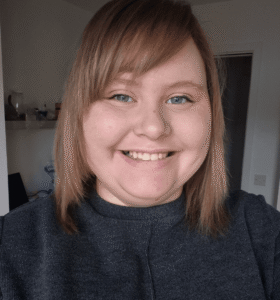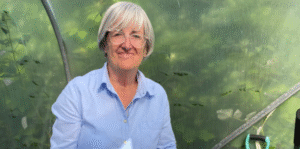
Frankee Fouin
Assistant Service Manager
Challenging myths around self-harm
After working in Penumbra’s Self-Harm Service and having my own experiences, or knowing others who share this experience, there are a lot of myths and misconceptions of what self-harm is, who self-harms and why. For Self-Harm Awareness Day 2023, I wanted to shed some light on these misunderstandings and provide a little insight into what this actually is.
Sometimes, people believe that if someone self-harms then they must be experiencing mental ill health, seeking attention, trying to manipulate others, or trying to end their life.
Whilst there is often history of self-harm for those who die by suicide or experience suicidal thoughts, more often than not, self-harm is used to cope and manage to prevent suicide. People that we support in the self-harm service may have a diagnosis of mental health ill health but anyone is capable of using self-harm as a way to cope.
To understand this more, it may be useful to know what self-harm is. There are misconceptions that self-harm occurs only when self-inflicted wounds are present but we support people who self-harm in various ways. Some people may deliberately cause physical harm to their body by inflicting wounds, others work or exercise excessively and some people may put themselves at risks in other ways by not looking when crossing the road or taking a more dangerous route home at night. For some people, they are accused of being an ‘attention seeker’, which is very concerning.
One of the purposes of self-harm is communication and expressing difficult feelings. For someone, they may struggle to reach out and ask for help, this may be one of the only ways that this person can connect to someone else about it. Many different people self-harm, but especially those who have experienced trauma.
Anyone is capable of using self-harm as a way to cope
A helpful way to support someone with their self-harm is to talk to them about how they are feeling. Do not focus on what they have done instead try get an understanding of their experience. Remember that this is a person who is trying to cope with something and they are not defined by that action. As one individual that we have supported said, “The self-harm behaviour does not define me. This is me at this moment in time but doesn’t define my past or future self.”
For many people, they feel ashamed and guilty for using self-harm as a way to cope and may not have spoken to anyone before about it or may have been judged and mistreated for it in the past. This can make it difficult to accept your support but it is wonderful for them to understand that you are there when they are ready to talk. It is important to know that not everyone wants to stop self-harming, or they are not ready to yet. We all have our ways of coping with challenges and life events, if someone has a reliable way of coping then they can be supported to do this in a safer way. This may mean checking in with them about keeping any tools or wounds clean and ensuring they know when they may need to reach out for support from a GP or other health professionals if necessary. We often support people to find safer alternatives that meet the need that their self-harm does. For some people, this may involve an activity that has some element of risk, for example playing full contact sports or skateboarding.
If someone continues to use self-harm as a coping mechanism, try to remember that this is not your fault. Being there to support someone without judging them and help them to feel supported can make a huge difference; but also look after yourself!
Huge thanks to Frankee for sharing her insight and expertise.
For more on where we work, visit out service checker: penumbra.org.uk/services




